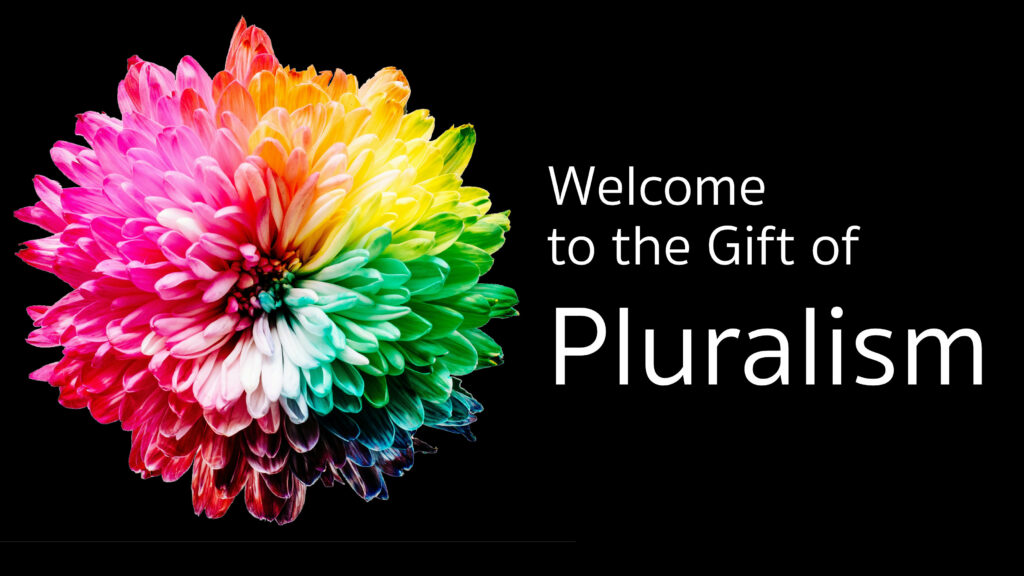
This month’s Soul Matters Theme is “pluralism”. And interestingly enough the packet that comes with this month’s theme includes a short reflection that I published a number of years ago as I explored pluralism during one of the courses I took at Hartford Seminary. At this moment in our Association’s history, as we continue to explore the possibility of transforming our Principles and Purposes, the issue remains relevant as both the previous statements and the newest draft affirm pluralism as central to our movement. Below, I ponder whether the term is actually the wrong one. I wonder what this evokes in you? Blessings, Aaron
The UUA’s Principles and Purposes conclude with an affirmation of religious pluralism “. . .which enriches and ennobles our faith, we are inspired to deepen our understanding and expand our vision.” The sentiment here is an enduring truism within Unitarian Universalism, that it too is an evolving tradition, which is the essence of a process of both deepening and expanding a common vision. I would also suggest that it is also an inaccurate statement. If [my colleague of blessed memory,] Gordon McKeeman’s sentiment(1) has any credence (and I think it does), then affirming “religious pluralism” misrepresents the current state of our movement. The distinction here is between the concepts of “religious pluralism” and “religious plurality.”
Beginning with the later concept, “religious plurality” has been defined by James Michael Lee as the mere “coexistence of the whole range of religious world views without any denotation or connection of intermingling, cooperation, or joint activities among persons or institutions embracing various orientations toward the Holy.”
“Religious pluralism” on the other hand, according to Lee (2)
. . .refers to a condition in which individuals or institutions coming from anywhere in the entire spectrum of sacral orientations interact with each other autonomously but related within the boundaries of a common allegiance to the Holy. . .[ M]embers and institutions of various religious orientations not only intermingle with one another and respect each other’s faith, but also actively cooperate with each other in order to broaden their own personal and corporate religious existence so as to infuse all reality with the full actuality of the Holy.
It is the later description of pluralism, the broadening of one’s “personal and corporate religious existence so as to infuse all reality with the full actuality of the Holy” that is of concern in interpreting the concluding sentiment of the UUA’s Principles and Purposes.
_______
(1) Engaging Our Theological Diversity, UUA Commission on Appraisal (UUA, Boston, MA: 1995) 4. One of the more provocative perspectives that the commission references in its 2005 report is the observation by Rev. Gordon McKeeman, Unitarian Universalist minister and former president of Starr King School for Ministry in Berkeley, California, that our current struggle to identify our center may be a product of work not done during the consolidation of the American Unitarian Association and the Universalist Church of America into a unified association. “Faced with the messy possibility that identifying a core for the consolidated movement might be too contentious, we seem to have decided instead to leave a question mark at the center.”
(2) James Michael Lee, “The Blessings of Religious Pluralism”, Religious Pluralism and Religious Education, ed. by Norma H. Thompson (Religious Education Press, Birmingham, AL, 1988) p. 59.
